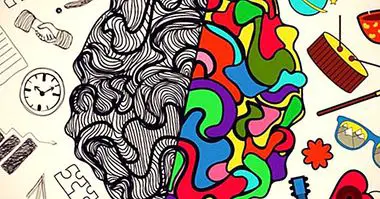How the brain protects us from traumatic memories
The experiences that we live throughout life, especially in the childhood stage, can have a great influence on our development, and even generate negative impacts on our brain, in the form of intrusive traumas and ideas . The "healing" of these can be complex. These memories can appear in the form of suffering in adulthood, and are an echo of those episodes of great intensity and emotional footprint experienced in childhood.
When someone has experienced episodes of physical or emotional abuse, or has not received the necessary care from their attachment figures, it is possible that later suffer psychological sequels. However, part of the "fault" of this damage is the same mechanism that the brain uses to protect us from complicated situations. Let's see it
- You may be interested: "What is trauma and how does it influence our lives?"
The memories blocked
In the face of certain harmful and traumatic experiences, at the physiological level, there is an alteration in the cerebral structures, as well as a great emotional involvement. There are occasions when an event appears and we do not know how to handle it and a strong and lasting negative strong emotion floods us.
In consultation I like to ask my patients to imagine that the brain is like a computer that contains all the information, experiences and memories of your life collected, organized and processed in folders. But when an event surpasses us, the lived experiences are stored in other memory networks. The memories related to the overwhelming negative experience have been blocked and fragmented, as if they had been frozen, isolated from the rest of the organized folders. It happens with these memories that we have not had the opportunity to process, since our brain has wanted to help us away from our day to day, because otherwise it would generate a very intense emotion difficult to bear.
But ... what happens? Well, for this help that our brain provides us pay a price, because at any given time these experiences will be activated by a trigger stimulus, that is, a new experience or situation that makes us reexperience what happened previously unconsciously, and all it comes to light. Sometimes they are small things that we can not control but that they make us feel as if we were really reliving that moment .
While most of the agreements end up being forgotten, those that refer to this type of experience are too intense to be forgotten, but they are not sufficiently contextualized and linked to our predominant beliefs, ideas and values to be part of that network of memories through which we move normally.
- Related article: "Emotional memory: what is it and what is its biological basis?"
An example of traumatic memory
Maybe with this example can be understood better. Imagine a child who at the age of 7 had a car accident with his parents. The 3 were very serious but finally they were able to get ahead. At home they did not talk about what happened, not only about the accident, but about the slow recovery in the aftermath of their lives were in danger. There has been no opportunity to explain to the child what happened, so that he could understand that experience and integrate it into his perception of reality.
This event is filed in the brain, but it is saved without being associated with the thoughts that accompanied it that day and during later ones. In addition, the brain, which is very good to us and always wants to protect us, holds this event in its depths so that this child can continue with his normal life.
A few years pass and this child turns 18 years old. His biggest dream is to get his driver's license, but on his first day of practice class and once he gets into the car, he starts to feel very anxious and nervous, so much so that he can not start the car and drive, without know why. It is at this moment when he returns to experience what happened that afternoon in which he was 7 years old.
What happens is that from a painful experience for the person, the information is stored in the brain in a dysfunctional way . When archiving in this way, the information can not be integrated or used by the person.
In the case of children who have suffered abuse, neglect or abandonment , the brain learns to protect itself and can adopt two ways of operating distintitos. It can become a hypervigilant brain, that is, the brain is constantly alert, even to stimuli that are not dangerous or endanger the life of the person. Our body reacts as if something bad were happening.
But this does not stop there; our brain can also adopt a form that is contrary to hypervigilance, that is, it can be hypoactivated.In these situations it is blocked, and many of the memories related to that disturbing event may not be remembered. This process will allow the individual to tell the event in a neutral way without emotional charge, as if separating from it.
Advantages and disadvantages of this protection
That our brain protects us in this way can be very advantageous, since it leaves us free of suffering and allows us to continue with our lives, but the truth is that in the long run it has multiple and uncomfortable consequences.
Perhaps the emotions of those who live this experience are anesthetized, or there may be times when they begin to feel some anxiety and not know why. Possibly you have experienced something that has led you to this hidden memory of the past, so if you do not work on it the effect of this memory can appear again and again.
Sometimes, it is very complicated to detect that the damage of the past still continues in the present, since as I explained above, emotions, and sometimes also memories, are dissociated or blocked. But it is important to work on these experiences, since in some cases they can cause the appearance of disorders. Remember, the past can not be forgotten, but we can work on it so that we do not constantly reexperience it and continue to harm us.



















